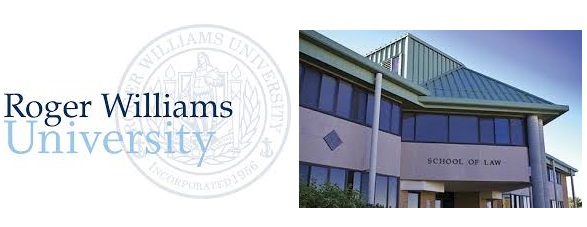Are you pursing a law degree? The TopSchoolsintheUSA.com has generated the latest ranking of best law schools in Rhode Island that provides Master of Legal Studies (MLS), Master of Dispute Resolution (MDR), Juris Doctor (JD), Master of Laws (LLM), or Doctor of Juridical Science (SJD). You can use the following list to pick a school that fits your needs. These law schools in Rhode Island are ranked based on the student reviews, alumni surveys, assessment of peer institutions, and official data reported by each law college. In addition, we also provide average LSAT scores, GPA and acceptance rates for each of these law schools in Rhode Island.

Top ABA-Approved Law Schools in Rhode Island
| National Ranking | Best Law Programs |
| 173 | Roger Williams University (Bristol, RI) Acceptance rate: 66.4% LSAT scores (25th-75th percentile): 149-155 GPA (25th-75th percentile): 3.07-3.55 Tuition & Fees: Full-time: $39,550 per year Enrollment (full-time): 555 Graduates known to be employed nine months after graduation: 71.9%
|
All Law Schools in Rhode Island
Rhode Island is home to only one law school, Roger Williams University School of Law. As the state’s only law school, it plays a pivotal role in shaping the legal landscape of Rhode Island and the surrounding New England region. Roger Williams University School of Law (RWU Law) offers a comprehensive legal education, with a strong focus on public service, experiential learning, and providing students with practical legal skills.
1. Roger Williams University School of Law
Overview
Roger Williams University School of Law (RWU Law), located in Bristol, Rhode Island, is the only law school in the state. Founded in 1993, RWU Law has quickly established itself as a leading institution for legal education in the New England region. The school is known for its commitment to public service, hands-on learning, and a supportive academic environment. With small class sizes and a focus on student-faculty interaction, RWU Law provides students with personalized attention and mentorship throughout their legal education.
The law school is uniquely positioned in Rhode Island, offering students access to externships and internships in state government, law firms, non-profits, and public interest organizations. RWU Law’s proximity to Providence and Boston also provides additional opportunities for students interested in exploring legal careers in larger metropolitan areas.
Degree Programs
RWU Law offers a range of degree programs designed to prepare students for successful legal careers, with an emphasis on practical training and public service:
- Juris Doctor (J.D.): The traditional three-year J.D. program provides students with a comprehensive legal education, covering all aspects of U.S. law. The curriculum emphasizes legal writing, research, and advocacy skills, preparing students for the bar exam and legal practice. RWU Law also offers concentrations in areas such as:
- Maritime Law
- Public Interest Law
- Environmental Law
- Criminal Law
- Business Law
- Joint Degree Programs:
- J.D./M.S. in Criminal Justice: This dual degree allows students to combine their legal education with advanced training in criminal justice, preparing them for careers in law enforcement, criminal litigation, or policy development.
- J.D./M.B.A.: Offered in partnership with Roger Williams University’s Gabelli School of Business, this program allows students to earn both a law degree and a business degree, providing valuable skills for careers in corporate law, business litigation, or entrepreneurial ventures.
- Master of Studies in Law (MSL): A non-J.D. degree program designed for professionals who do not wish to practice law but need a strong understanding of legal principles for their work in fields such as compliance, human resources, or government relations.
- Clinical Programs and Externships: RWU Law offers robust experiential learning opportunities through its clinical programs and externships, including:
- Criminal Defense Clinic
- Immigration Clinic
- Veterans Disability Appeals Field Clinic
- Corporate Counsel Clinical Externship
- Judicial Externship Program
These programs provide students with practical experience working on real cases under the supervision of practicing attorneys, judges, or corporate counsel.
Admission Requirements
Roger Williams University School of Law seeks students who demonstrate strong academic potential, leadership qualities, and a commitment to public service. While academic performance and LSAT scores are important factors in the admissions process, RWU Law also values work experience, community involvement, and personal accomplishments.
- Average LSAT Score: 150
- Average GPA: 3.20
- Application Components:
- LSAC (Law School Admission Council) application
- Personal statement: Applicants should explain their interest in law, their career goals, and why RWU Law is a good fit for them.
- Two to three letters of recommendation: Preferably from professors or professional mentors who can speak to the applicant’s academic ability and work ethic.
- LSAT score: Required for all J.D. applicants, though RWU Law considers the entire application package holistically.
- Resume: A resume highlighting academic achievements, work experience, leadership roles, and community service.
- Optional diversity statement: Applicants may submit a statement discussing how their background, experiences, or perspectives would contribute to the diversity of the law school community.
RWU Law has a relatively accessible admissions process compared to other law schools, making it an attractive option for students seeking a practical legal education with a focus on public service and social justice.
Starting Salaries
Graduates of RWU Law have a wide range of career opportunities, particularly in Rhode Island and the broader New England region. Many graduates pursue careers in law firms, government agencies, public interest organizations, or corporate legal departments. RWU Law has a strong track record of placing graduates in judicial clerkships, particularly in Rhode Island’s state courts.
- Private Sector: $60,000 – $90,000
- Public Sector: $45,000 – $65,000
- Judicial Clerkships: $50,000 – $65,000
- Non-Profit Organizations and Public Interest Law: $40,000 – $60,000
While starting salaries for RWU Law graduates vary depending on the sector and geographic location, the school’s emphasis on public service means many students pursue careers in government and non-profit organizations, where salary ranges may be lower but the work is highly rewarding.

